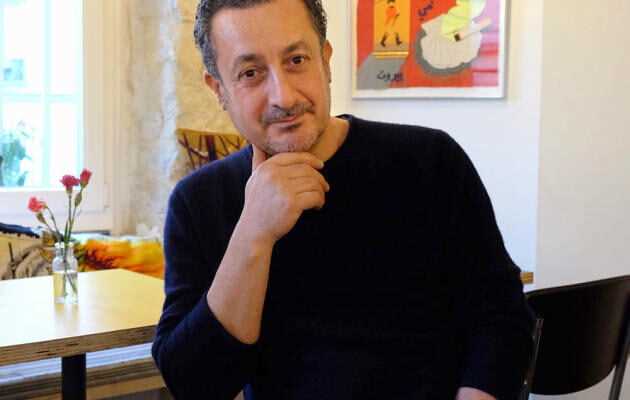Everything in Kamal Mouzawak exudes Lebanese cuisine. When it comes to talking about the food of his country, his eyes light up and his phrasing, imbued with a slight accent, suddenly begins to bounce off commas and consonants like the lid of a saucepan simmering on fire.
For several weeks, near the Place de la République, in Paris, the prolific Lebanese restaurateur and culinary author has been prowling the kitchens of Tawlet, his new restaurant space, thought of as a place halfway between the local grocery store and the family table d’hôte.
“If I let you smell a handful of zaatar, that raw wild thyme with a deep, strong scent, I’ll tell you the story of our mountains and the people who live there – without having said a word. » Kamal Mouzawak
Here, as in its twin address in Beirut inaugurated in 2009, Kamal Mouzawak opens its stoves to Lebanese women who take turns every day to cook typical dishes from their region and pass on part of their gastronomic heritage. This midday, a few days before the official opening, he welcomes friends, close collaborators and shopkeepers from the neighborhood with the warmth of his grand gestures and the small apprehension of previews.
Behind a long and large buffet, the conductor bustles about and moves mountains of hospitable attentions. Kamal Mouzawak grabs the ladles and cutlery, intercepts the dishes, fills the plates then hands them to each of his guests as one would entrust edible parts of oneself to a loved one. In their journey from table to table, the dishes offer a perfect synthesis of what Lebanese home cooking can offer to anyone trying to unravel its mystery.
“ The thing that best tells us about our roots and our culture is food, explains Kamal Mouzawak. If I make you smell a handful of zaatar, for example, this raw wild thyme with a deep and strong scent, I reveal to you the history of our mountains and the people who live there – without having said a word. »
For this son and grandson of farmers, a native of Beirut, food has always been a story of transmission and sharing. At the beginning of the 1990s, while his country, barely out of the war in Lebanon, was still compartmentalized and in the grip of heartbreak, he surveyed for the first time the plain of the Bekaa, Mount Lebanon and the different regions that make up this small strip of mountainous land of 10,000 square kilometers of incredible culinary richness. He then gave himself a mission, both militant and anthropological: to unite the Lebanese around a common history, that of their culinary heritage.
You have 66.78% of this article left to read. The following is for subscribers only.
